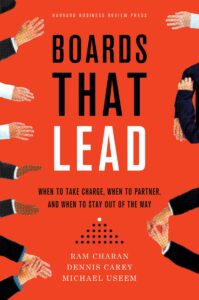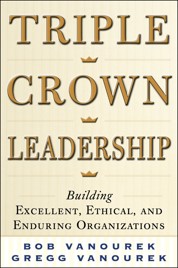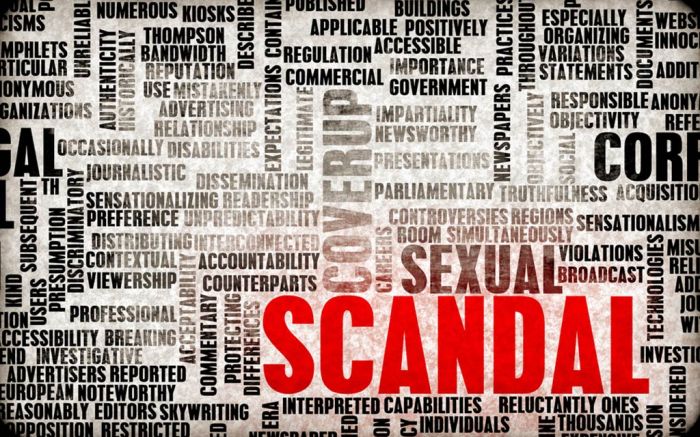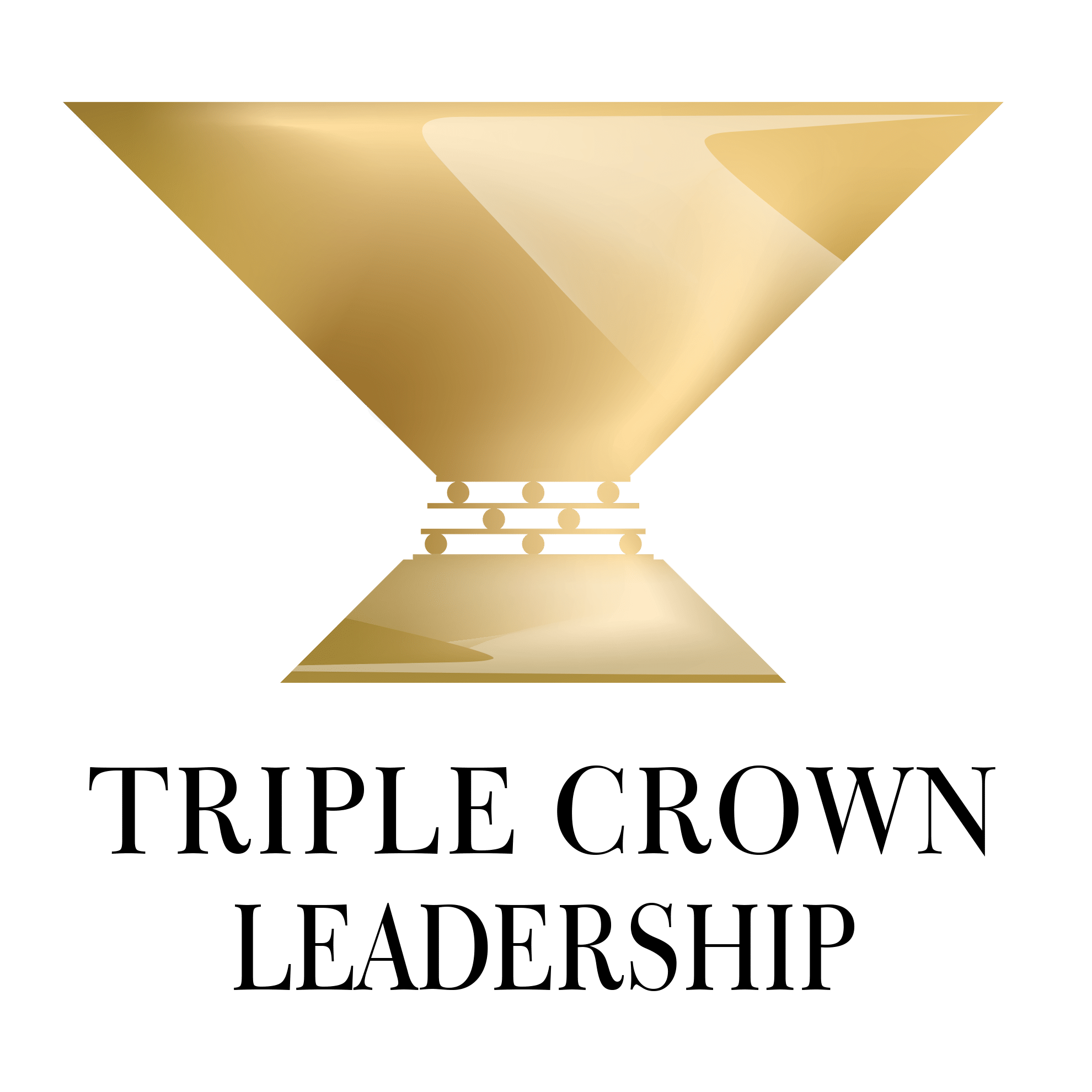Writing a half-century ago, Robert Greenleaf already saw a new and more active role for board members.* In his groundbreaking book, Servant Leadership, Greenleaf had a chapter on “Trustees as Servants.” He wrote:
“This chapter is an argument in support of trustees choosing to be servants.”
Greenleaf felt organizations (and their boards) were underperforming:
“… the best of our institutions is too far below what is reasonable and possible.… The conventional trustee role may be described as a reacting role. In such a reacting role, trustees usually do not initiate or shape the character of the institution, nor do they see it as their role to examine the traditional administrative wisdom.”
Greenleaf wanted directors in an
“ … affirmative role, so that… by their action they can help an institution to function at its optimum…. they should proceed to design a new role for themselves, and be prepared to invest the time required.”
He identified the “principal dimensions” of that more affirmative role:
- “Set the Goals: What business are we in and what are we trying to accomplish in it?…
- Performance Reviews…
- Executive Growth and Selection…
- Organization of the Top Executive Office…
- A New Concept of Trust. Everyone in the institution has a share in building trust.”
Greenleaf saw the role of the board chair as critical. That person would be primus inter pares: “first among equals.” He felt the board chair should be a full-time, paid employee, or “paid appropriately,” but not a “super-administrator” of the organization. That chair should be selected by his/her peers on the board.
Boards That Lead

Greenleaf was ahead of his time. One of our favorite books about boards is Boards That Lead: When to Take Charge, When to Partner, and When to Stay Out of the Way, by Ram Charan, Dennis Carey, and Michael Useem.
Far too often, board positions are ceremonial appointments. Too often, boards are rubber stamps, and board members are friends of the CEO.
Boards That Lead noted that while CEOs run the company, boards must lead on crucial issues such as: selecting, retaining, or dismissing the CEO; establishing a culture of ethics and integrity; setting goals and incentives; and pinpointing organization’s central idea.
The authors make the case that boards need to move from “monitoring” roles to being leaders in certain areas such as “why the business exists and a clear and compelling purpose that every stakeholder knows.”
The book outlined when board members should:
- Lead: on setting a culture of ethics and integrity
- Partner: on setting goals and strategy
- Monitor: monitoring value creation for stakeholders
- Stay Out of the Way: on execution, operations, delegated managerial authority, and more

Leadership Derailers Assessment
Take this assessment to identify what’s inhibiting your leadership effectiveness. It will help you develop self-awareness and identify ways to improve your leadership.
Boards as Stewards of the Organization
In our book, Triple Crown Leadership, we outlined how organizations should foster “stewards” throughout the ranks, from the entry-level employee to the board. As stewards, they empower people to act and lead by the shared values, encouraging them to step outside their traditional roles and promote what we call a “culture of character.” They’re stewards of the quest to become an “excellent, ethical, and enduring” organization (the “triple crown of leadership”). We offered suggestions for how to become such stewards.

Boards should:
- Focus on long-term value creation for all stakeholders while holding officers accountable for their short-term performance commitments.
- Ensure that compensation plans do not have unreasonable goals or outlandish rewards, thus tempting unethical behavior.
- Require ethics and culture-of-character training for everyone, including the board, to set an example.
- Engage independent monitors to conduct periodic surveys of stakeholders on ethics and sustainability and reviewing the results with the management team.
- Dig into ethics and compliance reports regularly at board meetings, with the appropriate management representatives present.
Where Were the Boards?
For too often, we have seen scandals rock organizations worldwide, across industries and sectors. They seem to come in waves. Some of the most notable are: Enron (2001), WorldCom (2002), Tyco (2002), HealthSouth (2003), Freddie Mac (2003), AIG (2005), Lehman Brothers (2008), BP (2010), Foxconn (2010), FIFA (2015), Volkswagen (2015), Theranos (2015), Wells Fargo (2016), Facebook-Cambridge Analytica (2018), Boeing (2019), Johnson & Johnson (2019), Wells Fargo again (2020), Facebook (2021), Pandora Papers (2021), and many more.

Yes, we can and should blame flawed CEOs and senior executives for this malfeasance. But where were the boards? And where are the boards that preside over underperforming organizations? Greenleaf was right when he wrote:
“Trustees as servants face one of the most exciting challenges of our times:
to lead our moribund institutions… into a future of greatness.”
Board members should be servant leaders.
* Note: Many people use “board of directors” and “board of trustees” interchangeably in common parlance, though there can be legal differences. Many people use “board of directors” for business boards and “board of trustees” for nonprofit boards, but that’s not always the case. For this article, the points apply to all types of boards.

Personal Values Exercise
Complete this exercise to identify your personal values. It will help you develop self-awareness, including clarity about what’s most important to you in life and work, and serve as a safe harbor for you to return to when things are tough.
Tools for You
- Leadership Derailers Assessment to help you identify what’s inhibiting your leadership effectiveness
- Personal Values Exercise to help you determine and clarify what’s most important to you
- Alignment Scorecard to help you assess your organization’s level of alignment
Related Articles
- New to the Boardroom? How to Succeed
- Leading Board Members Who Aren’t Natural Followers
- How to Become a Better Servant Leader
- The Essential Qualities of Servant Leadership
- Who Determines If You’re a Leader?
- Why Servant Leaders Outperform Bosses
- Do I Have to Be a Servant Before I Can Lead?
- Why Maximizing Shareholder Value Is Wrong
- How Robert Greenleaf Created Servant Leadership
- The Paradoxes of Servant Leadership
Postscript: Quotations on Boards and Servant Leadership
- “Ethics must begin at the top of an organization.” -Edward Hennessy, former CEO, Allied Signal
- “Boards are vital stewards, responsible for ensuring the long-term viability and health of companies under their charge for the benefit of current and future owners.” -Simon Wong, writing in the McKinsey Quarterly
- “Leadership is all about trusteeship.” -Dr. Manu Kulkarni, Siddaganga Institute of Technology

Triple Crown Leadership Newsletter
Join our community. Sign up now and get our monthly inspirations (new articles, announcements, opportunities, resources, and more). Welcome!
+++++++++++++++++++++++
Gregg Vanourek and Bob Vanourek are leadership practitioners, teachers, and award-winning authors (and son and father). They are co-authors of Triple Crown Leadership: Building Excellent, Ethical, and Enduring Organizations, a winner of the International Book Awards. Check out their Leadership Derailers Assessment or get their monthly newsletter. If you found value in this, please forward it to a friend. Every little bit helps!


